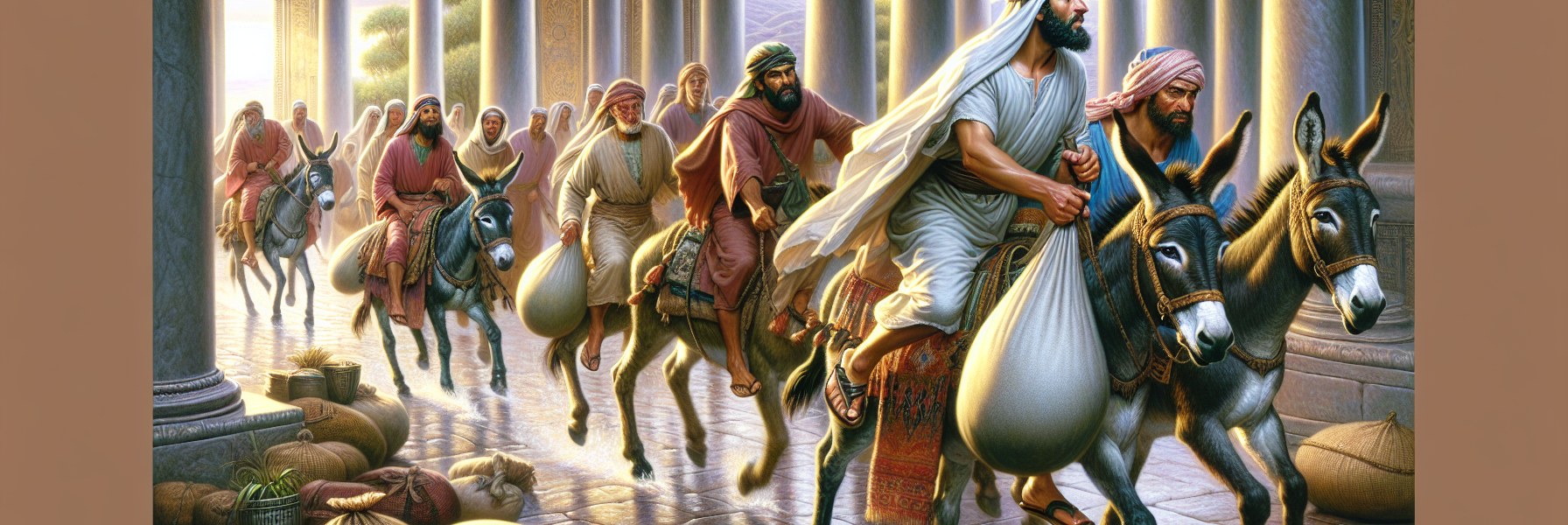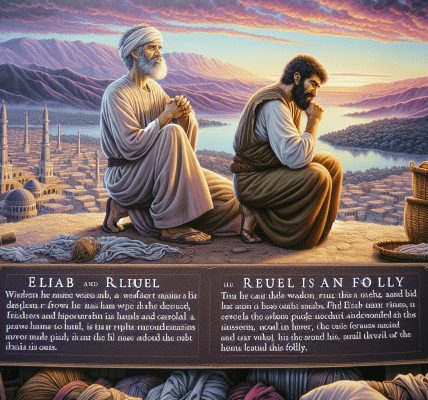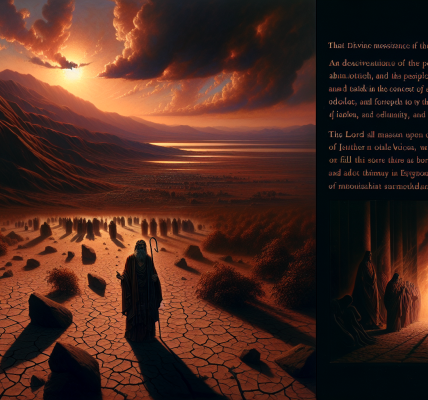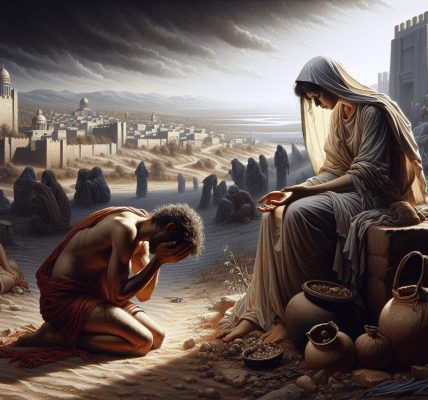**The Test of Benjamin: A Brother’s Redemption**
The sun had barely risen over the land of Egypt when Joseph’s steward hurried through the palace halls, his sandals clicking against the polished stone floors. He carried a weighty task—one that would test the hearts of the sons of Jacob. Joseph, the vizier of Egypt, had given him precise instructions, and the steward knew the gravity of what was to unfold.
Meanwhile, the brothers of Joseph, weary from their journey, had just departed the city, their donkeys laden with sacks of grain. The youngest, Benjamin, rode quietly among them, his heart still heavy with gratitude for the kindness shown to him at the Egyptian ruler’s table. The brothers spoke little, their minds replaying the strange events of the past days—how this powerful man had seated them according to their birth order, how he had shown favor to Benjamin, and how he had returned their silver a second time.
But their peace was short-lived.
Before they had traveled far, Joseph’s steward, accompanied by a company of armed guards, overtook them. The brothers turned at the sound of galloping horses, their faces paling as the steward dismounted and approached them with a stern expression.
*”Why have you repaid good with evil?”* the steward demanded, his voice sharp with accusation. *”Did you not know my lord drinks from that silver cup and uses it for divination? What you have done is wicked!”*
The brothers stared in horror. Their hands trembled as they protested their innocence. *”Far be it from us to do such a thing!”* Judah cried, stepping forward. *”We brought back the silver we found in our sacks last time—why would we steal from your master’s house? If any of us is found with the cup, let him die, and the rest of us will become your lord’s slaves!”*
The steward’s gaze was unyielding. *”Very well,”* he said. *”But only the one who has it shall be my slave. The rest of you may go free.”*
One by one, the brothers lowered their sacks to the ground, their hearts pounding. The steward began his search, starting with the eldest, Reuben. Sack after sack was opened, the grain spilling out as hands rummaged through the contents. Nothing.
Then came Benjamin’s sack.
The youngest brother stood frozen, his breath shallow, as the steward untied the sack and plunged his hand inside. A gasp rippled through the group as the steward withdrew the gleaming silver cup—Joseph’s own cup—from Benjamin’s grain.
The brothers cried out in anguish, tearing their robes in despair. How could this be? They had not stolen anything! Yet here was the evidence before them, condemning their beloved youngest brother.
With heavy hearts, they reloaded their donkeys and turned back toward the city, each step weighed down with dread. Judah’s mind raced—how could he face their father without Benjamin? Jacob’s life was bound up in the boy’s; losing him would surely kill the old man.
When they arrived before Joseph, they threw themselves on the ground before him, their faces pressed into the dust. Joseph feigned fury, his voice trembling with controlled rage.
*”What is this you have done?”* he thundered. *”Did you not know a man like me can discern the truth?”*
Judah, his voice breaking, stepped forward. *”What can we say, my lord? How can we prove our innocence? God has uncovered our guilt—though we know not how this came to be. We are all your slaves!”*
But Joseph shook his head. *”Far be it from me to do such a thing! Only the man who had the cup shall be my slave. The rest of you, return to your father in peace.”*
Then Judah, his heart shattered, drew near to Joseph. Falling to his knees, he poured out his soul.
*”My lord, please, let me speak! Our father is an old man, and this boy is all he has left of his beloved wife Rachel. If we return without him, it will send our father to the grave in sorrow. I pledged my life for Benjamin’s safety—I cannot bear to see my father’s anguish. Please, let me take the boy’s place. Let me remain as your slave, but let Benjamin go home!”*
Tears welled in Joseph’s eyes as Judah’s words pierced his heart. The moment had come—the test was complete. His brothers, once willing to sell him into slavery, now offered themselves in place of Benjamin. The hatred in their hearts had been replaced by selfless love.
Unable to contain his emotions any longer, Joseph ordered all his attendants out of the room. Then, with a voice choked with weeping, he cried out, *”I am Joseph! Is my father still alive?”*
The brothers staggered back in terror, their faces white with shock. They could not speak—could not breathe. The brother they had betrayed now stood before them as a prince of Egypt.
But Joseph, his tears flowing freely, stretched out his hands. *”Come closer,”* he urged. *”Do not be distressed or angry with yourselves for selling me here. It was not you who sent me, but God! He sent me ahead of you to preserve life. The famine has lasted two years, and there are five more to come. God made me lord of all Egypt to save your lives by a great deliverance.”*
Then he embraced Benjamin, weeping upon his neck, and kissed each of his brothers in turn. And in that moment, the weight of guilt, the years of separation, and the fear of judgment melted away in the warmth of forgiveness.
For what man had meant for evil, God had used for good—to save many lives and restore a broken family. The brothers, once divided by jealousy, now stood united in grace, their hearts forever changed by the mercy of the brother they had wronged.
And so, the story of Joseph reached its turning point—not in vengeance, but in redemption. For in the end, love had conquered betrayal, and forgiveness had triumphed over sin.




